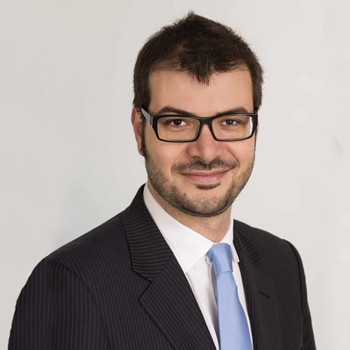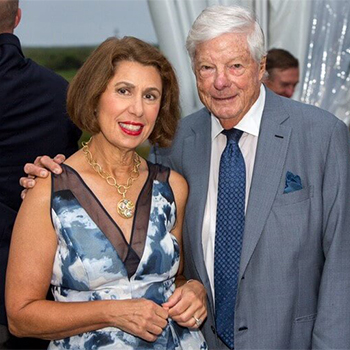MGB Research announced the inaugural recipients of the Rappaport MGH Grand Challenge Award — the system’s newest and most significant team science funding opportunity. This annual $3 million award, established as part of a gift from the Phyllis & Jerome Lyle Rappaport Foundation, is designed to assemble and support interdisciplinary teams of outstanding investigators to tackle the most pressing medical challenges patients face.
“At MGB Research, we have an almost unparalleled assemblage of scientific talent, pursuing an incredible range of research,” says Robert E. Kingston, PhD, Massachusetts General Hospital’s chief academic officer and senior vice president for research and education. “When we bring those faculty experts together and get them to focus on a handful of the most pressing challenges in human health, the potential impact is limitless. In this way, I believe the Rappaport MGH Grand Challenge Award can deliver the bold solutions that the future of medicine is depending on.”
“I believe the Rappaport MGH Grand Challenge Award can deliver the bold solutions that the future of medicine is depending on.”
A new theme is determined for each year’s award, selected by the Rappaport MGH Grand Challenge Award advisory board, a broad panel of volunteer scientific thought leaders from academia and industry. For its inaugural year, the newly formed advisory board selected brain health as its theme, and the review committee received 63 highly competitive applications from 10 departments. The internal review committee, composed of 43 disease experts, selected the top six most promising applications, which were reviewed and ranked by members of the advisory board, the award co-chairs and Mass General leadership.
This year, instead of selecting one winning team, the Rappaport Foundation generously decided to fund two, each at $3 million, in recognition of the potential impact of the projects.
Disabling an Entire Class of Deadly Neurological Disease
The first award-winning proposal seeks to leverage a Nobel-prize winning genome editing technology and decades of pioneering research at Mass General to create a new generation of precision therapeutics for a family of inherited, fatal neurodegenerative diseases. Repeat expansion disorders, which include Huntington’s disease, are caused by unstable, repeated segments of DNA that expand with time. These mutations cause brain cells to deteriorate, leading to motor, cognitive and psychiatric issues, and ultimately a shortened lifespan. No existing treatment has been able to stop or reverse the symptoms. But recently, scientists from the Mass General Center for Genomic Medicine (CGM) discovered a mechanism shared by dozens of repeat expansion disorders that may provide an opportunity to stop them in their tracks.

By using gene editing technology to make a small and precise change to the mutated DNA, the team — which includes 15 investigators from Mass General, Brigham and Women’s Hospital and the Broad Institute of MIT and Harvard — hopes to permanently prevent the repeats from expanding and stop neurodegenerative effects at their root. The team is also pursuing a novel early detection strategy that will help doctors determine which patients can benefit most from this new therapy. If successful, this research would create a master key to disable an entire class of neurodegenerative disorders.
“This support doesn’t just fund the next stage of our research; it accelerates our path toward a future where we can halt or even prevent the damage caused by these diseases for countless patients and their families.”
“This generous funding from the Rappaport Foundation will allow our multidisciplinary team to advance critical work in delivering this gene therapy to deep brain regions and to develop novel biomarkers that can track the therapy’s success without invasive procedures,” says Ricardo Mouro Pinto, PhD, lead investigator in the CGM and Department of Neurology. “This support doesn’t just fund the next stage of our research; it accelerates our path toward a future where we can halt or even prevent the neurological damage caused by these diseases and have truly transformative impact for patients and their families worldwide.”
A Precision Approach to Reducing Suicide
The second award-winning proposal hopes to unlock a new generation of targeted therapies to prevent suicide. Despite an increase in awareness, advocacy and access related to mental healthcare, more than 700,000 people die by suicide worldwide each year, according to the International Association of Suicide Prevention. New tools and methods are needed to confront this crisis and save lives.

Led by Joan Camprodon, MD, PhD, MPH, chief of the division of Neuropsychiatry and Interventional Psychiatry, this team of experts in psychiatry, neurology, neurophysiology, neuroanatomy, neuroimaging and behavioral research will examine the effects of two treatments known to reduce suicidal thoughts — electroconvulsive therapy and ketamine. The project aims to identify patient-specific treatment targets that could form the basis of a precision neuromodulation therapy for suicidal patients. This experimental approach could lay the foundation for a new generation of targeted treatments to reduce suicide risk quickly and safely.
“Suicide has long been linked to mood disorders and other neuropsychiatric conditions, but evidence is suggesting that it may be considered an independent clinical syndrome with its unique neurobiological mechanisms,” says Dr. Camprodon. “With the visionary support from the Rappaport Foundation, we hope to lay the groundwork for a new type of intervention for suicide that can save the lives of patients at risk and contribute to finally starting to bend the curve of the suicide epidemic.”
About the Awards and the Rappaport Foundation
The Phyllis & Jerome Lyle Rappaport Foundation has been an ardent supporter of biomedical research at Mass General and Mass General Brigham for almost 30 years. The Rappaport MGH Grand Challenge Award is at the heart of the foundation’s 2024 gift of $50 million to the Research Institute. That gift cemented the Rappaport Foundation’s legacy of support for talented scientists and honored the commitment of its late founder, Jerome Lyle Rappaport, known to many as Jerry, and positioned the Mass General Brigham research community for future success.

Through this latest gift, each year with the help of a team of internal and external experts, MGB Research will identify priority issues facing human health. By building on a proven model, the Rappaport MGH Grand Challenge Award will bring vital resources to healthcare’s most intractable problems and serve as an inspiration for the entire MGB research community.
“Jerry believed that when brilliant minds work together on humanity’s most urgent challenges, the results can be transformative. Our philanthropy with MGB began in 1991 focused on neurology and psychiatry, so it is deeply rewarding to see the inaugural Rappaport MGB Grand Challenge Awards devoted to brain health,” says Phyllis Rappaport, Foundation co-founder and chair. “I am confident these exceptional research teams will carry forward our vision to push the boundaries of science, accelerate discoveries and bring meaningful change to patients and families around the globe”.
To learn how you can support research at Mass General Brigham, click here.




